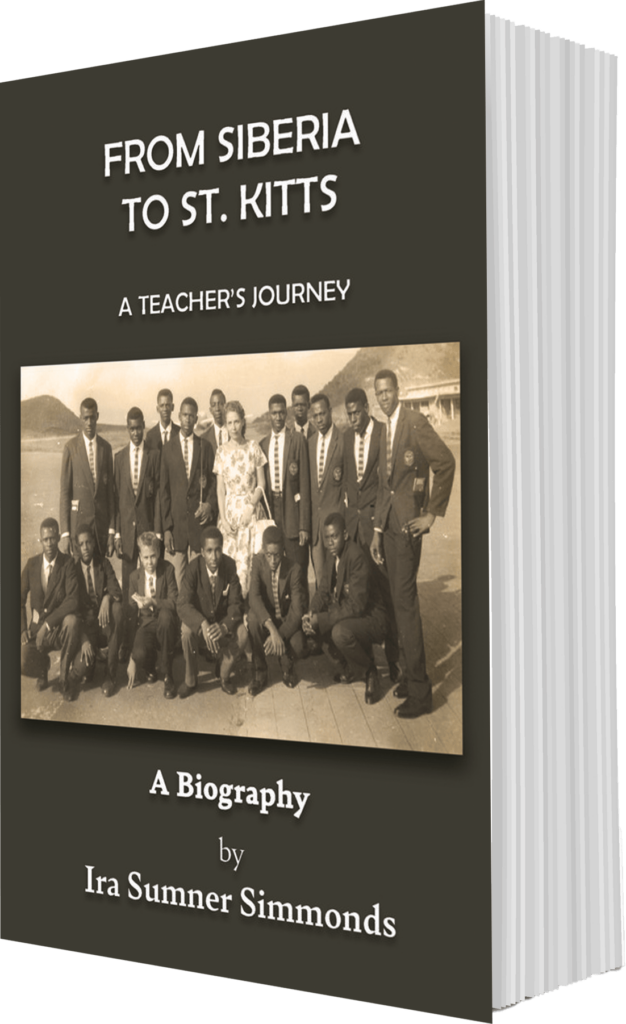Caribbean literature has long been a space for exploring identity, resilience, and community through fiction, poetry, and personal stories. While many notable works focus on political change, migration, and postcolonial reflection, From Siberia to St. Kitts by Ira Sumner Simmonds takes a different path. This biography of Madame Zenaida Katzen—a teacher who spent decades educating students in St. Kitts—offers a fresh contribution. It brings together history, education, and cultural memory. For this reason, the book rightly deserves recognition among respected Caribbean literature books.
A Unique Narrative Rooted in the Caribbean
Though Madame Katzen was not born in the Caribbean, her legacy is deeply tied to the island of St. Kitts. She arrived with years of international experience, having lived in Russia, China, and Chile before settling in the Caribbean. Once in St. Kitts, she dedicated herself to teaching languages and instilling discipline in her students. Her classroom became a model of consistency and excellence.
What makes this story important is that it takes place in a real Caribbean setting, involving real students and community life. Rather than presenting a fictional world, the book brings forward lived experiences that shaped Caribbean education from the ground up. This grounded, truthful lens is a welcome addition to Caribbean literature, where authentic voices and settings are essential.
Contribution to Preserving Regional Educational History
One of the underrepresented areas in Caribbean writing is the role of teachers in shaping society. While many literary works center on politics or national identity, few focus on educators who built their legacies through daily effort in schools. From Siberia to St. Kitts documents a teacher’s influence in detail—highlighting classroom structure, student feedback, and language learning methods.
Madame Katzen’s story preserves a part of regional history that is often forgotten. Her work didn’t make headlines, but it shaped the futures of many students. This biography ensures her efforts are not lost with time. That alone makes it worthy of being read and discussed alongside other Caribbean literature books that aim to protect and promote cultural memory.
Cross-Cultural Influence in Caribbean Society
The Caribbean has always been a region shaped by international movement. Madame Katzen’s life reflected that reality. She brought with her educational traditions from Europe and Asia, adapted to new environments, and connected with students of diverse backgrounds. Her multilingual teaching created bridges between cultures, and her presence added depth to the academic environment in St. Kitts.
Books that reflect this kind of cross-cultural experience offer more than personal narratives—they highlight the broader context of regional identity. From Siberia to St. Kitts shows how Caribbean classrooms were influenced by global history. Few Caribbean literature books present such a rich example of this intersection between the international and the local.
A Student’s Tribute as a Literary Contribution
This book is not only about Madame Katzen—it is also a reflection of a student’s gratitude. Author Ira Sumner Simmonds writes with respect and purpose, having been one of her students himself. His decision to document her life came from a sincere desire to preserve her influence. His research, interviews, and personal memories all come together to create a well-rounded portrait.
This act of writing serves as both a biography and a tribute. It adds emotional weight to the narrative without relying on dramatization. In doing so, the book becomes more than just a personal project—it stands as a meaningful addition to Caribbean literature books, especially those that aim to show real human connections across time.
Why It Belongs in the Caribbean Literary Conversation
Many themes commonly explored in Caribbean literature—migration, identity, and resilience—are present in this book. But instead of being filtered through fiction, they are presented through a teacher’s life. This perspective is uncommon, and that’s part of what makes the book so valuable.
Furthermore, it broadens the literary canon by including biography in a space often dominated by poetry and fiction. Students, educators, and general readers benefit from stories that show how everyday individuals—especially educators—shaped the lives of others. Including such work among Caribbean literature books strengthens the variety and depth of the genre.
In a Nutshell
From Siberia to St. Kitts tells the story of a woman who taught with purpose and lived with discipline, far from where she was born but deeply rooted in where she taught. Her influence in St. Kitts, remembered by her students and brought to light by one of them, speaks volumes about the quiet power of teaching. Through this biography, the Caribbean gains a new voice—one that doesn’t speak loudly but one that matters.
In the growing collection of Caribbean literature books, this title earns its place for honoring the overlooked, valuing education, and adding a global dimension to local history. This book is a record of impact, culture, and gratitude, all grounded in the Caribbean context.
Order your copy of From Siberia to St. Kitts today.
Add a powerful and meaningful biography to your collection.

